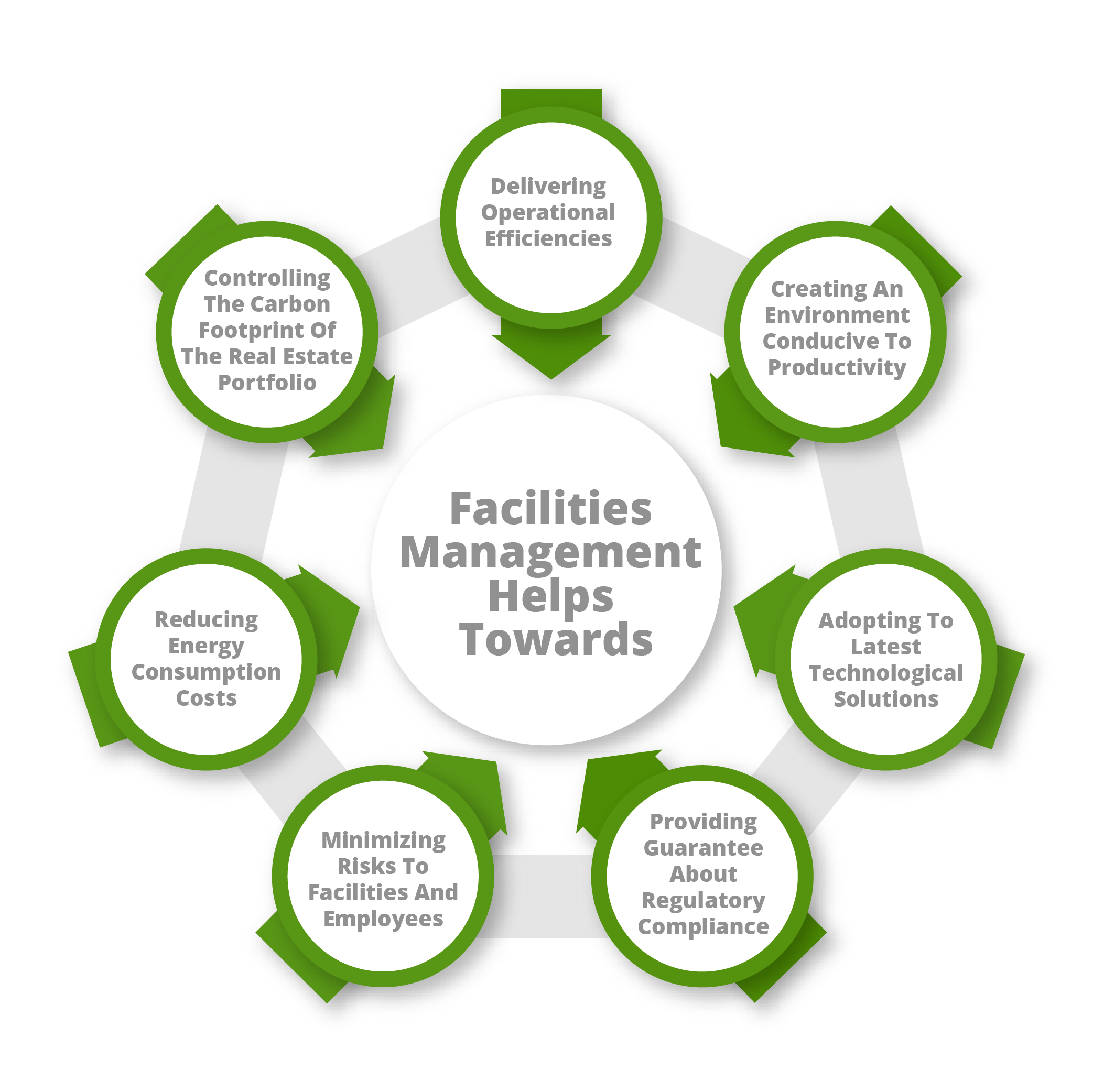How Total Facility Management Boosts Business Performance and Cost Efficiency
How Total Facility Management Boosts Business Performance and Cost Efficiency
Blog Article
Top Benefits of Total Facility Management for Streamlined Workflow
Total Facility Management (TFM) stands for a tactical strategy to improving functional efficiency by incorporating various solutions, such as maintenance and safety, under a unified management structure. The concern remains: what specific advantages can organizations harness from embracing TFM, and exactly how might these benefits transform their operational landscape?
Improved Operational Efficiency
Improved functional efficiency is a main advantage of executing total facility management (TFM) methods. TFM encompasses an extensive strategy to managing a facility's sources, procedures, and infrastructure, eventually simplifying operations. By combining different solutions-- such as maintenance, cleaning, space, and safety and security management-- TFM boosts and minimizes redundancies coordination among different operational functions.
The combination of innovation additional magnifies this performance. Advanced facility management systems supply real-time information analytics, making it possible for facility supervisors to make enlightened choices that boost operations and source appropriation. Anticipating upkeep strategies, for instance, prepare for tools failings prior to they happen, minimizing downtime and prolonging possession life expectancy.
Additionally, TFM promotes standard procedures throughout different departments, ensuring consistency and top quality in solution delivery. This harmony lowers functional interruptions and fosters a more joint workplace. Consequently, staff members can concentrate on their core obligations, driving productivity and enhancing total performance.

Cost Reduction and Financial Savings
Executing total facility management (TFM) not just increases functional performance however additionally substantially contributes to cost decrease and cost savings. By settling various solutions under a solitary management structure, companies can remove redundancies and streamline processes, therefore reducing operational expenses. TFM makes it possible for better procurement methods, permitting companies to work out bulk investing in agreements with providers and company, bring about lower prices.
Furthermore, TFM highlights preventative upkeep, which decreases unexpected breakdowns and prolongs the life expectancy of important tools. This aggressive strategy not just lowers repair costs but also enhances the reliability of facilitiess, ensuring uninterrupted operations. Additionally, power performance campaigns, often a key emphasis of TFM, bring about significant financial savings on energy expenses, as facilitiess are optimized for reduced power intake.
Improved Source Management
Effective source management is a foundation of total facility management (TFM), making it possible for companies to optimize the use of their properties and labor force. By carrying out TFM techniques, organizations can adequately analyze their source allotment, ensuring that every property is made use of effectively and efficiently. This holistic strategy enables the identification of underperforming sources and the capacity for reallocation or enhancement.
On top of that, TFM assists in the integration of modern technology for real-time tracking of resources, which assists in anticipating maintenance requirements and avoiding pricey downtime. By leveraging data analytics, companies can make educated choices regarding resource implementation, ultimately improving productivity and minimizing waste.
Furthermore, TFM advertises a culture of continual improvement, urging teams to consistently assess and improve their resource management techniques. Total Facility Management. This positive position not only lessens functional disruptions however additionally promotes technology, as employees are encouraged to suggest renovations based on their direct experiences with source utilization
Streamlined Interaction Networks
In total facility management, structured interaction channels play a vital role in promoting cooperation and performance across teams. Reliable interaction ensures that all stakeholders, including facility supervisors, upkeep staff, and provider, are straightened with operational demands and business objectives. By developing clear lines of interaction, teams can swiftly deal with worries, share updates, and apply solutions, thereby reducing downtime and improving click this site efficiency.
With streamlined interaction systems, details is conveniently obtainable, permitting real-time updates on upkeep demands, source appropriation, and task timelines. This openness not just lowers misconceptions yet additionally encourages workers to make educated decisions rapidly. Structured interaction assists in much better coordination throughout emergency situations, making sure that all workers are informed and can react immediately.

Boosted Concentrate On Core Activities
A key advantage of total facility management is the boosted concentrate on core activities, allowing organizations visit this page to focus on their main organization goals - Total Facility Management. By contracting out non-core features such as cleansing, upkeep, and protection, business can redirect their resources and energy towards tactical efforts that directly contribute to their competitive advantage and growth
Total facility management incorporates numerous functional tasks under a single umbrella, promoting effectiveness and reducing redundancy. This combination not only improves processes but additionally boosts liability, making sure that every facet linked here of the facility operates harmoniously without drawing away focus from what genuinely matters-- core service functions.
Additionally, this approach enables staff members to devote their time and efforts to tasks that drive technology and boost client complete satisfaction, rather than obtaining slowed down by operational challenges. With a trusted facility management companion managing day-to-day procedures, companies can achieve better agility, respond quickly to market changes, and keep a sharper focus on their mission.
Eventually, increased emphasis on core activities causes improved general efficiency, allowing companies to strengthen their market setting and accomplish their tactical objectives better. - Total Facility Management
Conclusion
In conclusion, Total Facility Management significantly improves operational effectiveness by combining crucial solutions and leveraging information analytics for notified decision-making. Price decreases and enhanced source management contribute to overall cost savings, while streamlined communication channels foster partnership among stakeholders.
Total Facility Management (TFM) represents a critical strategy to enhancing operational efficiency by integrating various solutions, such as upkeep and protection, under a unified management structure.Improved operational efficiency is a primary advantage of applying total facility management (TFM) strategies. Advanced facility management systems supply real-time data analytics, enabling facility supervisors to make educated decisions that improve operations and source allowance.Carrying out total facility management (TFM) not only boosts functional effectiveness but also dramatically adds to cost decrease and financial savings.Efficient resource management is a foundation of total facility management (TFM), making it possible for organizations to optimize the usage of their possessions and workforce.
Report this page